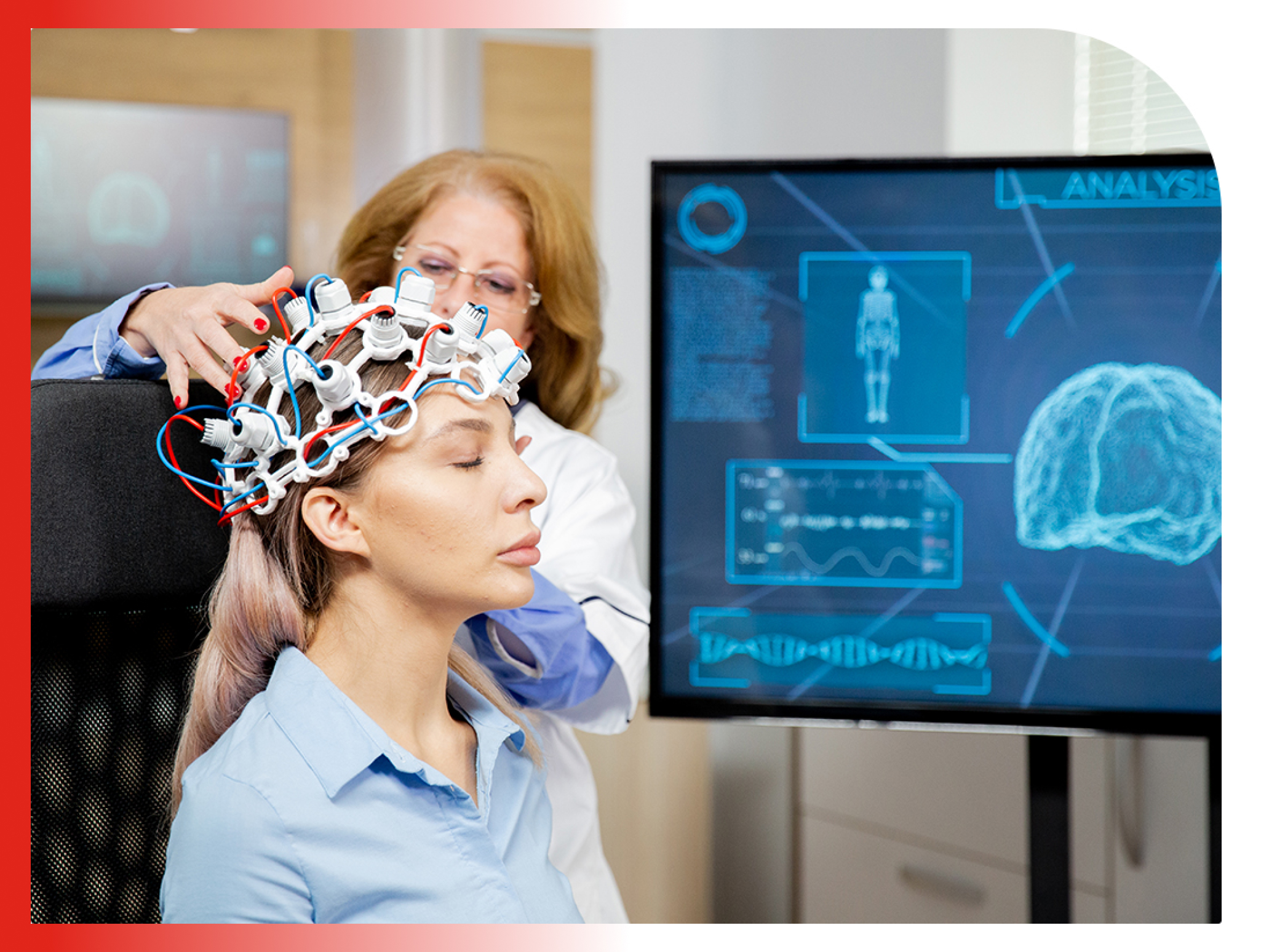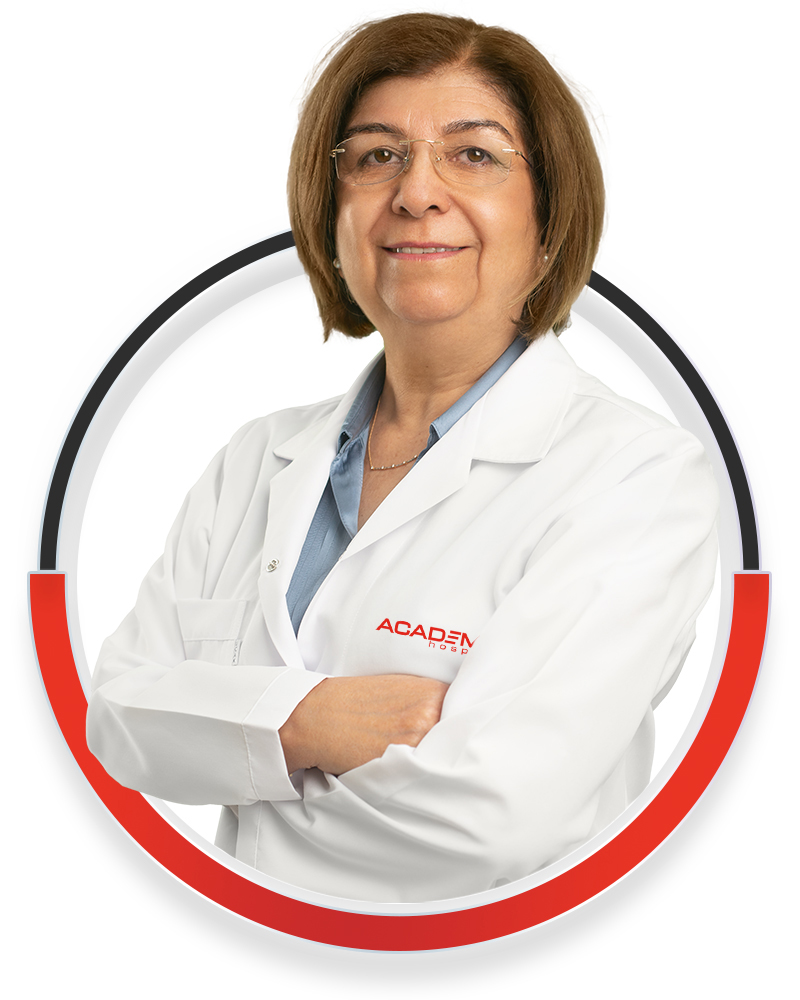What is neurology?
Neurology, the science of the diagnosis and treatment of diseases related to the nervous system of the body, is a branch of science that deals with problems related to the functioning of the brain, brainstem, spinal cord, nervous system, and muscles. Abnormalities in the structure of the brain, spinal cord, and nerves can lead to many health problems, from paralysis to epilepsy, from Alzheimer's to a loss of sensation. Neurology is the department that deals with the detection and treatment of these problems and works in collaboration with other medical units in a multidisciplinary approach.
How is a neurological examination performed?
As in all other examinations, in a neurological examination, the physician first listens to the patient's complaints and gathers information about the history of the disease. A thorough and accurate history of the disease provides the physician with numerous clues.Then we switch to the other stages of the examinations. At this stage, the physician needs to understand which hand the patient is using, whether there is a speech disorder, neck stiffness and meningeal symptoms, vision and smell problems, and whether the motor system is working as it should. Evaluations of wakefulness, lethargy, confusion, and delirium come to the fore in consciousness examinations.
Academic Hospital Department of Neurology
In the Department of Neurology at Academic Hospital, the anatomical and physiological features of the brain and nervous system, disorders, and clinical syndromes that occur for various reasons are discussed.
The follow-up and treatment of our patients are carried out with great care in our Intensive Care Unit in cases of life-threatening coma, progressive stroke, and frequently recurring seizures.
Academic Hospital Neurology Department's Service Areas
The Academic Hospital's Neurology Department provides service 24 hours a day, 7 days a week, through its experienced and respected physicians in order to solve the problems of people with neurological problems. The main diseases handled in the Department of Neurology are as follows:
Brain strokes
Brain paralysis, also known as stroke, occurs when there is insufficient blood flow to the brain or excessive blood flow to the brain due to vessel occlusion.However, conditions such as ruptures in the vessels and damage to a part of the brain can also cause cerebral palsy. Early diagnosis is of vital importance in cerebral palsy, which manifests itself through factors such as speech and understanding difficulties, difficulty walking, weakness in the arms and legs, and visual disturbances. Permanent damage to the patient's blood supply can be avoided if a clot-dissolving treatment is administered within 3 to 4 hours of the symptom's onset.
Epilepsy
People refer to epilepsy, which affects millions of people worldwide, as a "seizure" disease. As a result of the sudden and uncontrolled discharge of neurons in the brain, the patient loses consciousness, makes involuntary movements, and shows emotional changes. This condition is called "epilepsy seizure." The patient can continue his normal life after the seizure. In epilepsy, which can be prevented to a large extent by drug treatment, there may be cases where the drug is insufficient and then surgical intervention may be applied.
Movement Disorders
Involuntary shaking of the hands, an inability of the body to move as fast as necessary, and short-term forgetfulness in memory may be symptoms of some diseases. Problems such as Parkinson's, restless legs syndrome, and the inability to walk properly are handled by the neurology department, and treatment processes are initiated.
Multiple Sclerosis (MS)
It occurs when plaques form in the brain and spinal cord due to disorders in the immune system. Multiple sclerosis is a disease that can occur after the age of 20. Thanks to the treatment methods applied by the physicians and regular controls, the patient can maintain his daily life more comfortably.
Alzheimer'sanddementia
Dementia, which is more commonly called being senile, and Alzheimer's disease, which you encounter more frequently today, are among the diseases that fall under the field of neurology. Alzheimer's disease and dementia, which show symptoms of forgetfulness in the early stages of the disease, are unfortunately not curable diseases. However, neurologists can prevent the rapid progression of the disease with drug treatment.
Headache
Considering headache as the first symptom of many diseases, Academic Hospital's Neurology Department evaluates this type of pain under two separate headings: "primary" and "secondary." The diagnosis and treatment of migraine and tension-type headaches are the most common in primary headaches.Secondary headaches develop as a result of nervous system dysfunction.
EEG (Electroencephalography)
Electroencephalography, or EEG in its abbreviated form, is the printing of electrical activity produced by nerve cells in the brain during both wakefulness and sleep as brainwaves on paper. In this method, which is used for the detection of the disease, one hour of sleep and wakefulness is measured.








